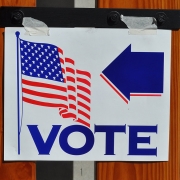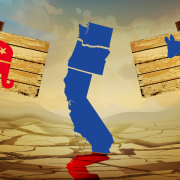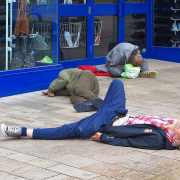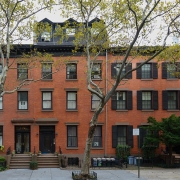The Real American Divide
Elections are never easy to predict. But whatever the outcome of America’s Midterms next month, it does seem certain that vast swathes of the American electorate will be largely ignored. In state after state, voters face a Hobson’s choice between abortion-banning, election-denying Trump loyalists on the one hand and Democrats embracing the Biden administration’s unpopular economic and cultural agenda on the other.
November’s election will introduce a new crop of politicians who are either themselves on the ideological extremes, or who at least feel compelled to placate their party’s most intemperate elements. A Republican victory in November seems set to continue this pattern: there are proposals for extreme abortion bans and calls for the impeachment of top administration officials, and there is also a growing personal focus on Biden’s family scandals and, of course, Trumpista election denial.
But instead of appealing to extremes, America should return to a simpler politics centered on what the Swedish sociologist Gunnar Myrdal calls ‘the American creed’. This, he explains, is Americans’ ‘abiding sense that every individual, regardless of circumstances, deserves fairness and the opportunity to realise [his or her] unlimited potential’. Given America’s ideological, regional and racial diversity, we can best address the ‘American dilemma’ by adopting pragmatism as a guiding philosophy.
America’s current ideological fixations are partly the result of the party primary system. Here the extremes tend to exercise more power, especially with the rise of ideologically purist Political Action Committees (PACs), which feed off discord and dysfunction. They prefer to focus on their opponents’ failings rather than their own ideas. Ironically, this negative partisanship has been made worse by the Democrats’ cynical support for far-right Republican candidates. On the grounds that an unpopular opponent would galvanise their own base, they supported Kari Lake in the Arizona primary, which Lake won in August. Now the Republican candidate for governor of Arizona, Lake, who is ahead in the polls, is accused by Democrats of being a ‘threat to democracy’.
These cabals of party activists and operatives thrive in conditions where the media – with good reason – are distrusted. Indeed, almost all major institutions, from corporations to the military, the FBI, the education sector and even churches have lost public support. This is made worse by petty tyrants like speaker of the house Nancy Pelosi, senate majority leader Charles Schumer and his Republican counterpart, Kentucky senator Mitch McConnell. Each demands Stalinist conformity in votes in the House, meaning that representatives must always parrot the same line, even if that damages their constituents.
Politicians’ ideological partisanship reflects a growing gap between the political class and the bulk of the population. Half of Democrats, for instance, still consider themselves moderate or conservative, while only 15 per cent see themselves as ‘very liberal’. Another study found that in US society as a whole, ‘traditional’ and ‘passive’ liberals outnumber the eight per cent who are ‘progressive activists’ by three to one. Meanwhile, there are almost six times as many ‘traditional conservatives’ and ‘moderates’ than ‘devoted’ right-wingers, who comprise just six per cent of the population. Overall, according to a Gallup poll last month, 43 per cent of Americans now identify as independent, which is more than those identifying as either Republican or Democrat.
So while most Americans are moderate and pragmatic, they are often stuck with two unpalatable alternatives. Fewer than 10 per cent identify as either ‘very conservative’ or ‘very liberal’. Yet, as University of Chicago political scientist Anthony Fowler notes, moderates ‘are silent in no small part because in political surveys, the public is often not given the opportunity to express its moderate views’.
Read the rest of this piece at Spiked.
Joel Kotkin is the author of The Coming of Neo-Feudalism: A Warning to the Global Middle Class. He is the Roger Hobbs Presidential Fellow in Urban Futures at Chapman University and Executive Director for Urban Reform Institute. Learn more at joelkotkin.com and follow him on Twitter @joelkotkin.
Photo: Tom Arthur via Flickr, under CC 2.0 License.







